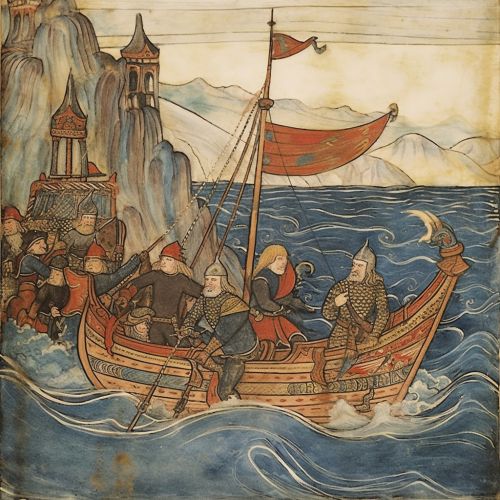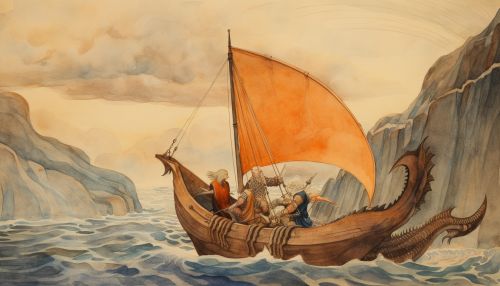English literature
Origins
English literature is a rich and diverse field that spans centuries, from the Old English period to the present day. The origins of English literature can be traced back to the oral tradition of the Anglo-Saxon period. The earliest known work of English literature is the epic poem Beowulf, which was composed in the 7th or 8th century. This poem, written in Old English, tells the story of a heroic warrior who battles monsters and dragons. It is a work of great complexity and sophistication, and it provides a window into the culture and values of the Anglo-Saxon people.


Middle English Period
The Middle English period (1100-1500) saw a great flourishing of literature, much of it written in the vernacular. This period is best known for the works of Geoffrey Chaucer, often called the father of English literature. His most famous work, The Canterbury Tales, is a collection of stories told by a group of pilgrims on their way to Canterbury. The tales are diverse in style and subject matter, and they offer a vivid portrait of medieval society.
The Renaissance
The Renaissance (1500-1660) was a period of great cultural and intellectual activity, and it produced some of the most celebrated works of English literature. The most famous writer of this period, and perhaps of all time, is William Shakespeare. His plays and poems have had a profound influence on English literature and on the English language itself. Other notable writers of this period include Christopher Marlowe, John Donne, and Ben Jonson.
The Enlightenment
The Enlightenment (1660-1785) was a period of great intellectual ferment, and it saw the rise of the novel as a major literary form. The most famous novelist of this period is Daniel Defoe, whose works include Robinson Crusoe and Moll Flanders. Other notable writers of this period include Jonathan Swift, Alexander Pope, and Samuel Johnson.
The Romantic Period
The Romantic period (1785-1832) was a reaction against the rationalism of the Enlightenment, and it emphasized emotion, imagination, and the beauty of nature. The most famous poets of this period are William Wordsworth, Samuel Taylor Coleridge, John Keats, Percy Bysshe Shelley, and Lord Byron. Other notable writers of this period include Jane Austen and Sir Walter Scott.
The Victorian Period
The Victorian period (1832-1900) was a time of great social change, and it produced a wealth of literature that reflected the complexities of the era. The most famous novelist of this period is Charles Dickens, whose works include Great Expectations, A Tale of Two Cities, and Oliver Twist. Other notable writers of this period include Thomas Hardy, George Eliot, and Robert Browning.
The Modern Period
The Modern period (1900-1945) was a time of great experimentation in literature, and it produced works that challenged traditional forms and conventions. The most famous writers of this period include James Joyce, Virginia Woolf, T.S. Eliot, and D.H. Lawrence.
The Postmodern Period
The Postmodern period (1945-present) is characterized by a questioning of grand narratives and a focus on language and representation. The most famous writers of this period include Salman Rushdie, Iris Murdoch, Harold Pinter, and Angela Carter.
